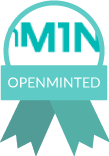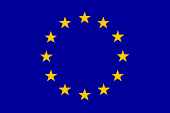Guidelines for supporting TDM at universities
Text and data mining can refer to a broad range of different activities, but fundamentally it involves using computer algorithms to analyse content and generate new knowledge. Computers are able to process data on a much larger scale than any human reader, and assess more variables across more datasets. The potential benefits to researchers are vast – but uptake and use of TDM technology in Europe is thus far lagging behind other areas of the world.
The FutureTDM project has produced several sets of guidelines to help address specific challenges to greater use of text and data mining (TDM) technologies. These include guidelines to help practitioners better understand the legal and licensing situation around TDM, and guidelines to help creators of data and content manage and share their data. In each case these guidelines are intended to be relevant to all stakeholders involved in TDM and data creation activities, from academia to industry to the general public.
One finding that emerged from the FutureTDM project, however, was that universities in particular have a key role to play as stakeholders in the TDM landscape. These guidelines aim to highlight just how and why universities play such a crucial role, and provide practical advice on what universities can do strategically to support TDM within their own institutions and across the wider TDM landscape.
As we will explain, supporting TDM and related skills has the potential to bring a wide range of benefits to universities and their students and researchers.



 Unless otherwise stated, all materials created by the FOSTER consortium are licensed under a CREATIVE COMMONS
ATTRIBUTION 4.0 INTERNATIONAL LICENSE.
Unless otherwise stated, all materials created by the FOSTER consortium are licensed under a CREATIVE COMMONS
ATTRIBUTION 4.0 INTERNATIONAL LICENSE.
 This project has received funding from the European Union’s Seventh Framework Programme for research,
technological development and demonstration under grant agreement no 612425.
This project has received funding from the European Union’s Seventh Framework Programme for research,
technological development and demonstration under grant agreement no 612425.